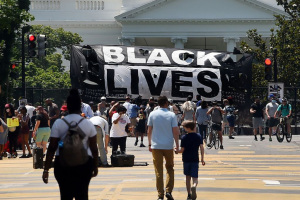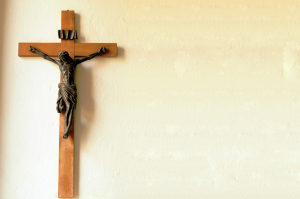Calif. Judge Refuses to Bow Out of Prop. 8 Appeals Panel
A California federal judge has refused to recuse himself from the legal proceedings surrounding Proposition 8 despite his connections to an organization that opposes the traditional definition of marriage.
U.S. 9th Circuit Court of Appeals Judge Stephen Reinhardt is ducking requests from Proposition 8 supporters to withdraw himself from the judicial panel hearing the appeal of a court ruling that struck down the California amendment as unconstitutional.
Reinhardt is married to Ramona Ripston, the longtime head of the Southern California office of the American Civil Liberties Union. The ACLU has filed an amicus brief in the appeals case, urging the court to uphold the previous ruling.
Days before the scheduled hearing on Dec. 6, Reinhardt wrote, "I will be able to rule impartially on this appeal, and I will do so," in a letter denying the recusal motion.
Prop. 8 proponents believe differently.
In a letter, the religious freedom defense organization The Pacific Justice Institute stated, "Judge Reinhardt's extreme prior decisions and his wife's active opposition to Prop. 8 make it clear to any intellectually honest observer that he cannot hear the case impartially."
In addition to his personal affiliation to the ACLU, Reinhardt upheld the firing of a Hewlett-Packard employee who expressed his Christian views on homosexuality despite the company's diversity campaign in a 2004 ruling.
Richard Peterson was fired after he posted scripture verses labeling homosexuality as an abomination. He posted them after HP displayed pictures of gay employees in company posters as part of its "Diversity is Our Strength" campaign to promote diversity within the work force. Peterson argued he was wrongly singled out. Reinhardt ruled that he was fired for his violation of HP's harassment policy.
The following year, Reinhardt ruled that that parents do not have a "right to compel public schools to follow their own idiosyncratic views as to what information the schools may dispense" in light of a Palmdale School District questionnaire. The questionnaire was given to children ages 7 to 10 and asked, among other things, the frequency of "touching my private parts" and "having sex feelings in my body."
He also ruled just last year that the Defense of Marriage Act unconstitutionally denies benefits to gay federal employees' spouses.
Proposition 8, which amended the state constitution to define marriage as between a man and a woman, was passed in the November 2008 state elections by 52 percent of California voters. In August, Judge Vaughn Walker of the U.S. District Court for the Northern District of California ruled that the amendment was unconstitutional. The decision was appealed to the Ninth Circuit Court.
The National Organization for Marriage is calling on Californians to write an official complaint to the Ninth Circuit demanding that Judge Reinhardt be disqualified from hearing the case next Monday.
Federal law and the Code of Conduct for United States judges provide a list of circumstances in which a judge must disqualify himself.
The list includes disqualification on the grounds that a judge's "impartiality might reasonably be questioned." Circumstances that may lead to the questioning a judge's impartiality include instances in which the judge's spouse is "(i) a party to the proceeding, or an officer, director, or trustee of a party; or (ii) acting as a lawyer in the proceeding."
NOM asserts that Ripston consulted with lawyers to challenge the constitutionality of Proposition 8 after it was voted into law. The conservative group also claims that she contributed money to the No on Proposition 8 campaign.
"If our federal courts are to have any credibility, Judge Reinhardt cannot be allowed to sit as a judge in a case in which his wife is involved," said NOM president Brian Brown.
Reinhardt, named to the court by President Jimmy Carter in 1980, was one of the three judges randomly selected to hear the appeal. The other two judges are Michael Daly Hawkins, an appointee of President Bill Clinton, and N. Randy Smith, named to the court by President George W. Bush.



























